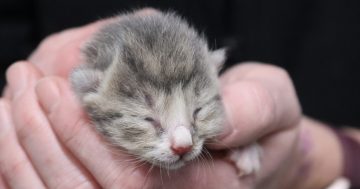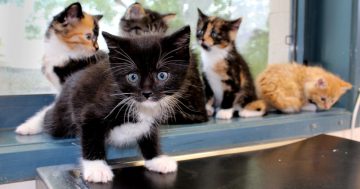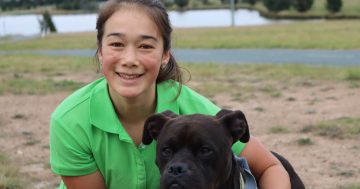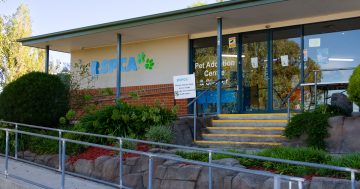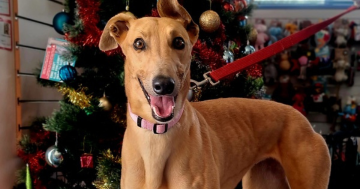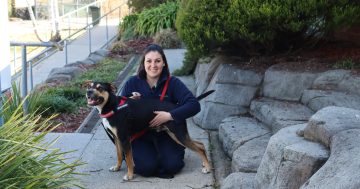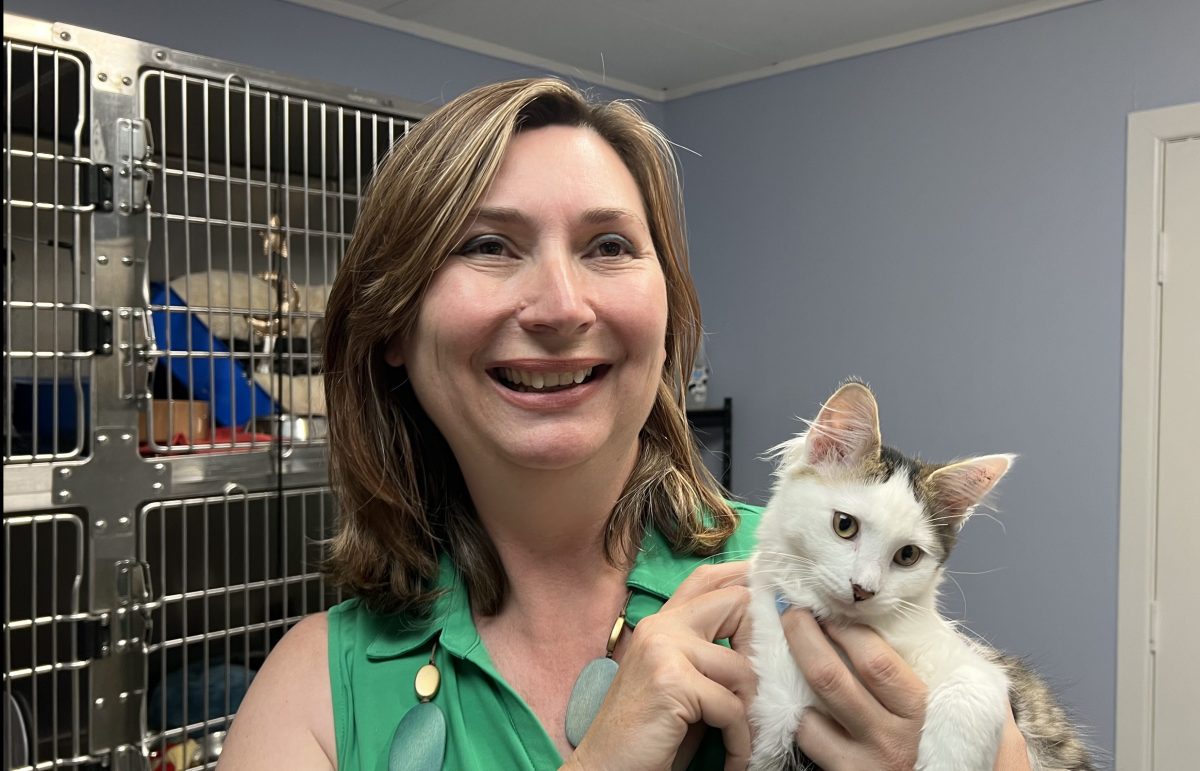
RSPCA ACT chief executive Michelle Robertson says the number of kittens in care this season has been “crazy”. Photo: Travis Radford.
Canberra’s RSPCA has been struggling with the aftermath of a “crazy” kitten season after an influx of more than 1000 in just two months.
There are currently 325 animals in the care of the RSPCA ACT, about half of which are kittens, split between the RSPCA’s south Canberra location and foster carers.
Nearly 130 animals are in care at the Weston shelter, exceeding its capacity of about 70 cats and dogs, and 10 rabbits.
But despite surging numbers, only 38 animals were available for adoption.
RSPCA ACT chief executive Michelle Robertson explained most of the 150-odd kittens in foster care were not ready for their new homes.
“Some of the kittens that we get, they’re not much bigger than the size of my hand, so they require intense care,” she said.
“They have to come up to weight and be healthy, and then they get desexed.
“So, it will still be weeks before they would be ready for adoption.”
Ms Robertson said other animals came in with behavioural issues or required medical care, further slowing the adoption process.
“Every single animal that comes in requires some form of vet care. Some of it is quite complex, some is quite simple,” she said.
“We have a very small but wonderful team and they can only do so many procedures and consults per day.”
The charity is also seeing a higher number of surrenders, with 20 to 30 people on a waitlist to give up their cats or dogs.
“What is really concerning for me is, in the top-three reasons now for surrenders is affordability. Whereas affordability was ranked much lower previously,” Ms Robertson said.
“It’s [high cost of living] permeating every single aspect of life at the moment and pet ownership is just another.”
Ms Robertson said the other top reasons were ”changing circumstances” and ”too many animals”.
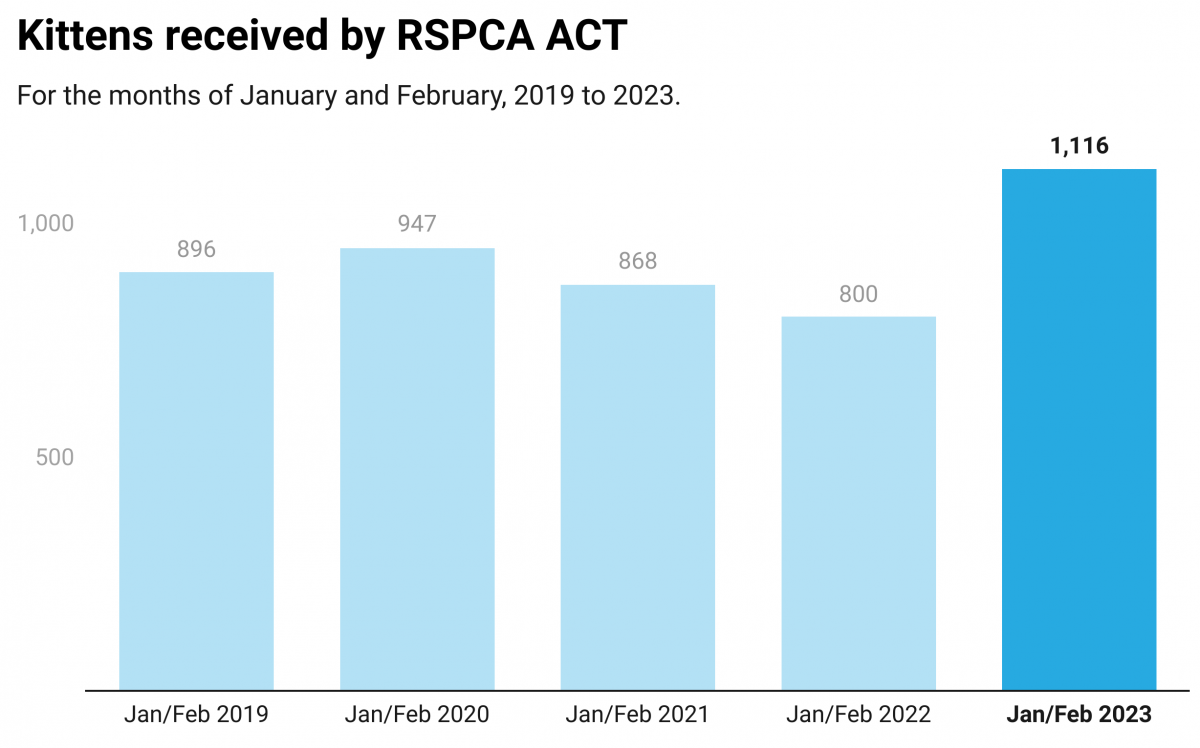
January and February 2023 have seen the highest number of kittens received by the RSPCA ACT in many years for this period. Source: RSPCA ACT.
However, the reasons for the ACT’s biggest kitten season in “many, many years” have proved more of a mystery.
“Our most pressing period usually falls between November and February … predominantly because it’s the season when kittens are born,” Ms Robertson said.
“Usually, kitten season ramps up and then plateaus and starts tapering off.”
But this has not yet happened this year.
“We are seeing this across the whole of Australia. So, it’s not just the ACT,” Ms Robertson said.
“The other RSPCAs in other states and territories are also saying, ‘Gosh, there’s just a whole lot of kittens’.”
The RSPCA is still trying to understand the reasons behind the kitten explosion this year, but there is some early anecdotal data.
“If you take a very longitudinal view, every six to seven years, it seems as if there is a bit of an upturn in the birth rates,” Ms Robertson said.
“But we don’t understand it well enough yet to say this is exact and evidence based. It’s sort of anecdotal at this point.”
Ms Robertson said the pace of work was unrelenting, putting an enormous strain on the shelter’s staff and volunteers.
“It becomes really, really exhausting, but it also means that we can’t help as quickly as what we’d like.”
She said people could help by fostering animals, volunteering for the shelter, adopting, or donating.
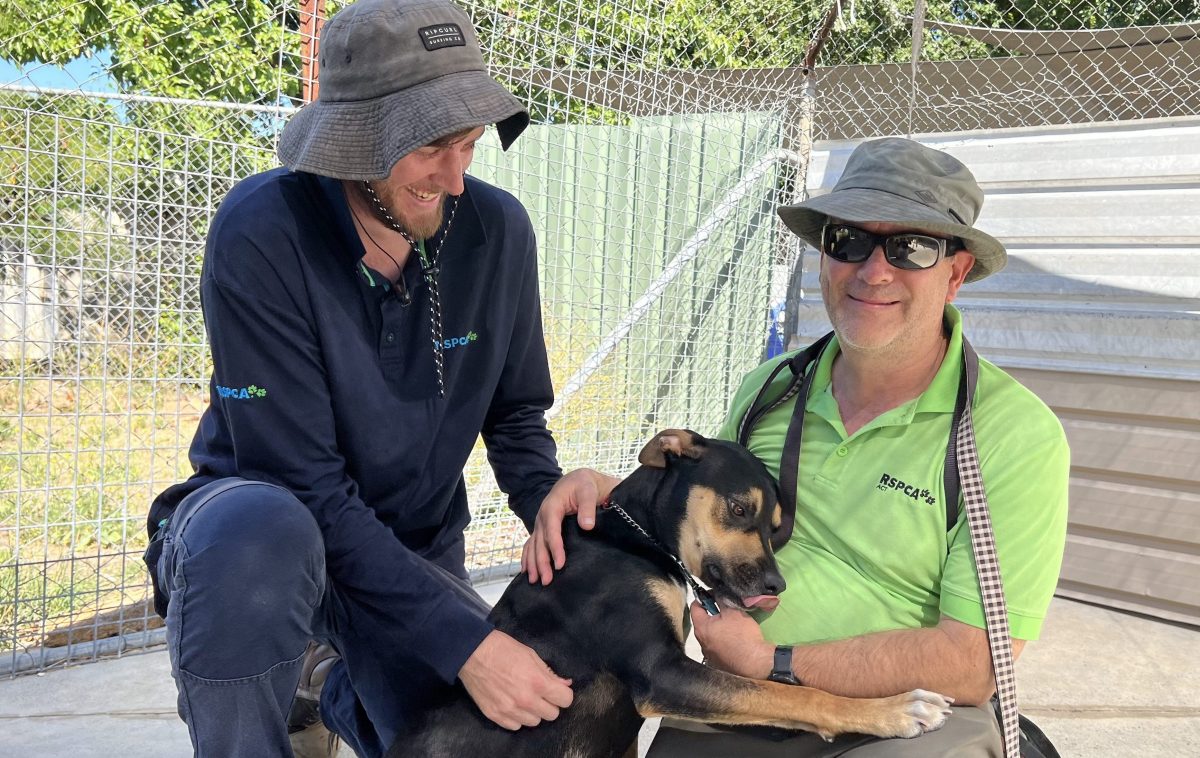
Clayton, one of the shelter’s adult dogs, with RSPCA ACT volunteer Mark Jenkin (right) and animal carer Tyler Maher. Photo: Travis Radford.
Ms Robertson urged people thinking of adopting not to make an impulsive decision and to be aware of the responsibility of pet ownership.
“You’ve got to make sure that you want a pet, that your lifestyle can accommodate a pet, and that you can afford a pet,” she said.
“If you’ve done all that thinking, consider getting an older animal.
“The older cats don’t go as quickly as the kittens. The older dogs don’t go as quickly as the puppies.”
Ms Robertson said people up for the challenge should also consider adopting an animal with medical conditions or behavioural issues.
“And if none of that is possible, just be a responsible pet owner, be a lover of animals, and help spread the word. That’s something that everybody can do.”












